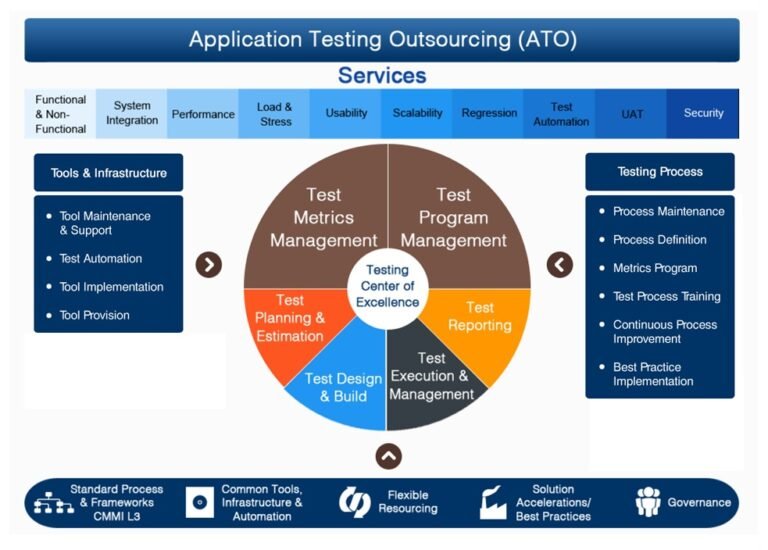The rise of AI tokens has created a new frontier in the cryptocurrency ecosystem, blending artificial intelligence with blockchain-based digital assets. While technological innovation is critical, the success of any AI token project depends heavily on effective marketing strategies that drive investor awareness, adoption, and engagement. Unlike traditional cryptocurrencies, AI tokens often target both tech-savvy investors and participants interested in innovative solutions such as machine learning-driven decentralized finance (DeFi), autonomous smart contracts, and predictive analytics platforms. Marketing AI tokens requires a multifaceted approach that highlights utility, community, and long-term value while leveraging data-driven techniques to optimize outreach and engagement.
Understanding AI Token Marketing
AI tokens are distinct from standard cryptocurrencies because their value is often tied to the utility of AI-driven platforms and services rather than purely speculative trading. This introduces marketing challenges: investors must understand not only the token’s market potential but also the technical capabilities of the AI ecosystem it supports. Traditional cryptocurrency marketing approaches, such as social media hype or influencer campaigns, are often insufficient.
Marketing campaigns must educate potential investors on the functional benefits of the token, such as automation, predictive analytics, and decentralized AI services. They must also address common concerns such as technical complexity, security, and long-term viability. By framing the token’s value proposition clearly, marketing bridges the gap between innovation and investor confidence, reducing friction for potential participants.
Building Community-Driven Engagement
One of the most impactful AI token marketing strategies is creating an active, engaged community. Communities provide social proof, amplify project awareness, and generate loyal investors who participate in governance, staking, or platform activities. Social media channels, forums, and AI-focused discussion groups are essential for fostering dialogue and showcasing the token’s capabilities.
Community engagement strategies include AMA (Ask Me Anything) sessions, live webinars, Discord/Telegram group discussions, and incentivized referral programs. Gamified campaigns—where members earn rewards for completing educational tasks or promoting the project—can also foster long-term engagement. When investors feel ownership in the ecosystem, they are more likely to participate actively, advocate for the project, and hold their tokens for the long term.
Content Marketing and Educational Campaigns
Education is a cornerstone of successful AI token marketing. Investors need to understand the technical benefits, ecosystem use cases, and potential returns associated with the token. Long-form content such as blogs, whitepapers, research reports, and explainer videos provides clarity and positions the project as a credible, authoritative player in the AI and blockchain space.
Educational campaigns can also involve tutorials and simulation platforms, where potential investors interact with AI-driven tools such as predictive analytics dashboards, decentralized trading bots, or smart contract automation. By demonstrating tangible utility, these initiatives not only educate investors but also build confidence in the project’s long-term viability.
Leveraging Data-Driven Marketing and AI Analytics
AI tokens inherently lend themselves to data-driven marketing because they operate within tech-centric ecosystems. Marketing teams can leverage machine learning and analytics to identify investor preferences, behavioral trends, and engagement patterns. This enables highly targeted campaigns that maximize conversion rates while reducing wasted marketing spend.
For example, predictive algorithms can determine which segments respond best to whitepapers, webinars, or video tutorials. Marketing strategies can then be dynamically optimized based on real-time feedback, ensuring that investor outreach remains effective, personalized, and engaging. The use of AI for marketing not only enhances precision but also aligns messaging with the technical sophistication of the target audience.
Incentivizing Investor Participation Through Tokenomics
Effective tokenomics drives engagement by offering tangible benefits to participants. AI tokens can integrate staking rewards, liquidity mining, governance participation incentives, or gamified achievement systems to encourage adoption. Clear communication of these incentives in marketing campaigns ensures investors understand the long-term advantages of participating in the ecosystem beyond speculative gains.
For example, a project may launch a tiered staking program where early investors earn higher rewards or special governance privileges. By promoting these initiatives, marketing teams can attract participants who are motivated to actively engage and support ecosystem growth, reinforcing network effects.
Strategic Partnerships and Ecosystem Collaborations
Partnerships with established blockchain platforms, AI research organizations, or enterprise technology companies enhance credibility and visibility. Highlighting collaborations in marketing campaigns signals that the project has robust industry backing and practical use cases.
Ecosystem integration—such as DEX listings, cross-chain support, or AI-powered DeFi applications—further strengthens investor confidence. Marketing efforts that communicate these integrations demonstrate real-world utility, which is critical for attracting informed, long-term investors. Additionally, collaborations with payment providers or institutional platforms can extend reach and expand adoption in untapped markets.
Gamification and Interactive Marketing Approaches
Gamified engagement strategies resonate strongly with tech-savvy investors. AI token projects can use prediction markets, simulation platforms, leaderboard challenges, and interactive tutorials to showcase token utility while incentivizing participation. Gamification not only educates users but also creates memorable experiences that reinforce engagement and brand loyalty.
For instance, an AI token project might allow investors to test automated trading bots or predictive AI models in a simulated environment, earning rewards for performance or participation. By providing hands-on experiences, marketing campaigns demonstrate practical value while encouraging deeper interaction with the ecosystem.
Social Media and Influencer Strategies
Social media remains a critical marketing channel, but campaigns must balance hype with substance. Platforms like Twitter (X), LinkedIn, Telegram, and Discord are invaluable for reaching retail and institutional investors. Marketing content should highlight technological differentiation, real-world applications, and long-term vision rather than focusing solely on price speculation.
Influencer partnerships can amplify awareness, particularly when influencers specialize in AI, blockchain, or DeFi. By collaborating with credible voices who can explain technical features, use cases, and ecosystem benefits, AI token projects enhance credibility and encourage investor engagement that is meaningful and informed.
Transparency and Trust-Building
Investor trust is paramount. AI token marketing strategies must emphasize transparency in project development, governance, token distribution, and security protocols. Regular updates, open-source code, audit reports, and Q&A sessions foster accountability and credibility.
Transparency builds long-term engagement by reassuring investors that the project is reliable and sustainable. Marketing campaigns should highlight milestones, technology updates, and ecosystem growth to demonstrate continuous progress, which is critical for maintaining investor confidence and long-term support.
Real-World Use Cases and Practical Demonstrations
Marketing campaigns should emphasize real-world utility. AI token projects that integrate with predictive analytics platforms, autonomous DeFi protocols, AI marketplaces, or enterprise applications can showcase tangible benefits that attract serious investors. Demonstrating adoption by real businesses or successful use cases increases credibility and positions the token as a practical tool rather than a speculative asset.
Case studies, product demos, and success stories can be powerful marketing assets. Investors are more likely to engage when they see measurable outcomes and understand how the AI token contributes to meaningful technological innovation.
Monitoring, Analytics, and Iterative Marketing
AI token marketing is most effective when it leverages continuous monitoring and analytics. Platforms can track campaign performance, investor behavior, engagement metrics, and conversion rates in real-time. Machine learning algorithms can optimize messaging, channels, and outreach strategies dynamically, ensuring marketing remains relevant and effective.
Iterative campaigns allow projects to adjust strategies quickly in response to market trends, investor sentiment, or feedback. This adaptive approach maximizes investor engagement while improving ROI on marketing spend.
Case Studies of Successful AI Token Marketing
Fetch.ai exemplifies a successful AI token marketing approach by combining community engagement, educational content, and strategic partnerships. The project emphasizes practical AI use cases, autonomy in DeFi operations, and predictive analytics, attracting investors interested in innovative blockchain solutions.
SingularityNET uses gamification, influencer collaborations, and educational campaigns to engage investors in its decentralized AI services marketplace. By showcasing technological differentiation and transparency, it builds long-term investor confidence and ecosystem participation.
Other projects, such as Numerai, leverage token incentives to reward accurate predictive models submitted by data scientists, aligning AI token functionality with marketing narratives that highlight innovation, utility, and financial opportunity.
Future Trends in AI Token Marketing
AI token marketing will increasingly rely on AI-driven personalization, predictive analytics, and immersive experiences. Virtual reality, interactive simulations, and AI-powered investor dashboards may become standard tools to demonstrate token utility. Long-term engagement will also depend on integrating marketing with ecosystem participation, providing tangible rewards for active involvement, and maintaining transparent communication channels.
Emerging trends include algorithmic content optimization, sentiment analysis for investor engagement, and predictive targeting for campaigns. Projects that combine technical sophistication with advanced marketing practices will lead the AI token market in adoption, engagement, and retention.
Conclusion:
AI token marketing requires a holistic strategy that combines education, community-building, data-driven outreach, incentives, and transparency. By emphasizing real-world utility, technological differentiation, and long-term value, projects can attract informed investors who are more likely to engage actively and hold tokens.
Gamification, strategic partnerships, targeted content, and immersive experiences further strengthen investor engagement, creating a self-reinforcing cycle of loyalty, adoption, and advocacy. As the AI token space grows, projects that integrate intelligent, adaptive marketing strategies will not only maximize investor engagement but also establish sustainable ecosystems, driving long-term success for both the project and its participants.





